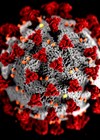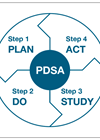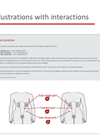Trainees' Forum
Mentorship and its role in surgical training
Is there a principle which could help address multiple challenges in surgical training? One which has potential to improve recruitment and retention of staff to our specialty, quality of patient care and surgeon morale? The author discusses the past present...
The effect of COVID-19 on urology training
COVID-19 has affected all aspects of medicine. Urologists have been called upon to work in vastly different working environments including acute pan-surgical teams, intensive care and medical wards. The strategies put in place by hospital management teams vary significantly across...
COVID-19: the impact on a junior registrar
Prior to the coronavirus pandemic I was a trust grade junior registrar, using this year at a district general hospital to gain experience, skills and portfolio points for round two of National Selection. My urology registrar on-call duties would consist...
How to organise a urology taster week as a foundation trainee
Current exposure to urology in medical undergraduate curriculums is relatively sparse in comparison to the other surgical specialties with one study reporting just 42% of students having a compulsory attachment. These attachments were an average length of just one week...
#DontPayToStay Campaign – how one urology trainee led a successful campaign to eliminate charges for non-resident on call accommodation across England
The 2016 terms and conditions of service (junior doctor contract) introduced the following clause: 11. Where a doctor is rostered to work on a non-resident on-call working pattern and the doctor elects voluntarily, subject to the availability of accommodation, to...
The value of Urolink: an OOPE experience
I was fortunate enough to be able to take some time out of my training after ST5 to pursue an Out Of Programme Experience (OOPE) year. During the Urolink meeting at the British Association of Urological Surgeons (BAUS) 2017 conference...
TUF Warriors – joining the fundraising fight
What is the TUF Warrior programme? The Urology Foundation (TUF) Warrior programme is designed to support core trainees, clinical fellows and foundation doctors interested in urology. It creates opportunities to develop extracurricular interests, connect with patients, boost applications for specialty...
Bouncing Back: support, mentorship and advice for those unsuccessful in urology ST3 national selection
The 2018 BAUS Annual Scientific Meeting in Liverpool delivered the first session for applicants unsuccessful in urology ST3 national selection. The session was organised and run by Luke Forster, Core Training Liaison Representative, along with several trainees. Background The concept...
Quality Improvement – how to get involved?
The General Medical Council (GMC) requires all trainee doctors to carry out Quality Improvement (QI) as part of our annual appraisal process [1]. Exactly what QI projects are and how to get involved is less widely understood. Traditionally surgical trainees...
SURG and BAUS: United Strength is Stronger
Tuesday 26 June 2018, SURG Session, BAUS Annual Conference, Liverpool After a busy day of posters, keynote speakers, e-poster sessions and a resounding victory for the SURG team over the consultants in Urology University Challenge, came the SURG meeting. An...
Post CCT fellowship in genitourethral reconstruction at St George’s Hospital: an experience unique to the UK
I first developed an interest in genitourethral reconstruction, particularly urethroplasty, at the beginning of my urology training. Working in Bristol and Weston Super Mare for David Dickerson inspired me to develop this further. Mr Dickerson performs one of the largest...
Making the most of BJUI Knowledge – a trainee’s perspective
BJUI Knowledge combines online continuing professional development (CPD) content for urologists with a platform for recording all CPD activity in one place. This also makes it a useful resource for urological trainees. This article will outline how to use BJUI...














